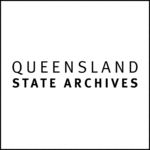93
Facsimile
Transcription
[right margin]
[by F J Watson]
[Mungar] A railway junction. Originally the site of a
sawmill called the [Mary River Sawmill]. A small sawmilling
business was hereacquired in the late sixties or early seventies
of last century by [Messrs Ramsay and Co.] of [Maryborough]. Under
the able managment ,first by [Mr H. Armitage] and later by his
brother [Edward] ,a large business was built up whereby many
millworkers ,mechanics , and timber-getters and teamsters were
employeed. But with the "cutting out" of the large timber
leases in the locality held by the company and the increased
means of transport by rail of log timber to the mills at [Maryborough],
which was the port for the district, the business at [Mungar] waned
and the milling plant was/acquired by [Hyne and Son] of [Maryborough]
for the purpose of enlarging the plant at their town sawmill,
The name Mungar or,as it was first spelled, Mungarr, is
derived from the Kabi word Mungarr,meaning the blue gum tree.
The full story of the rise and fall of the towship of [Mungar]
would read as quite a small romace.
[Yerra]. A railway station three miles from [Mungar] on the
Gayndah Railway is derived from yirra, the native name of the
spotted gum tree. A sugar plantation,now non est, nearby
was called [Yerra Yerra].
[Yengarie]. A railway station, nine miles from [Maryborough].
Also a Dairy farm now occupied by [Mr J. Mahony].
About 1862 [Yengarie] was the site of a boiling-down establish-
ment owned by a [Mr J.C.White], afterwards a [M.L.C.] of New South
Wales. This property was later acquired by [Tooth and Cran] of
[Widgee Widgee] and other stations who erected and managed a sugar
factory and refinery which, in its day,was the largest in
Queensland. After many years, with the decline of sugar-growing
on the [Mary River], Messrs [Cran & Company] removed their interests
to the [Isis] and [Bundaberg]. The story of [Yengarie] is also
a romance. The name has been said to be derived from
native words meaning a sleeping place or sleepy place, but
a Kabi aboriginal informed me,and he was quite emphatic on that
the name was yan Kárí (karee)meaning "go away". In discussing
this with a son of the original owner he agreed that this was
probably the origin of the name.
Notes and Questions
Please sign in to write a note for this page
